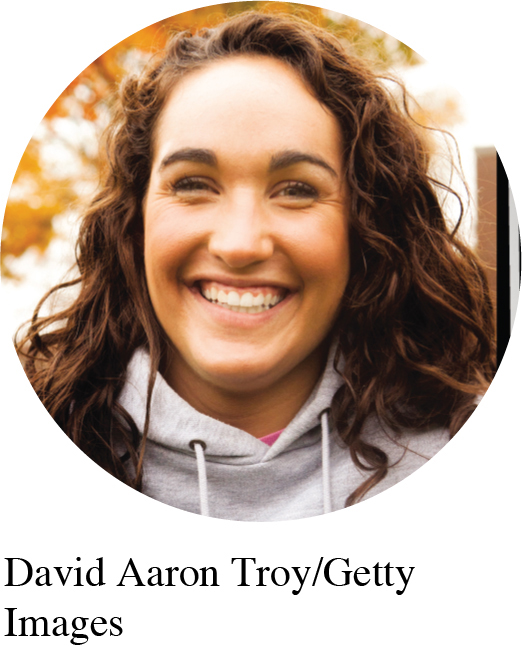Student Profile with Introduction

Alyssa Manning, 18
Psychology major
The University of North Carolina at Charlotte
 Thinking for ourselves and coming up with new conclusions will be really helpful when we enter the workforce.
Thinking for ourselves and coming up with new conclusions will be really helpful when we enter the workforce. 
As a psychology student at the University of North Carolina at Charlotte (UNC Charlotte), Alyssa Manning understands the importance of thinking skills both inside and outside the classroom. When Alyssa arrived on campus last fall, she learned that she would be living in the international residence hall with students from all over the world. She quickly learned that interacting with people who don’t know anyone else in the United States and who have different customs, study habits, and food presented some welcome challenges and tested her thinking skills. “Some of the questions the international students ask about America make me think in a different way because I never think about my own country in that way.” One way she has been able to reach out to the students she lives with is by joining an international student organization, which helps bring new international students to campus and get them settled into campus life.
Alyssa grew up in Philadelphia and decided to attend UNC Charlotte because she was interested in the research opportunities available to her as an undergraduate psychology major. The beautiful campus and location in Charlotte didn’t hurt either! So far, her favorite class has been social psychology. She has found good thinking skills to be essential to succeeding in all her classes. “Professors will give you a lot of facts and general information, but they expect you to be able to relate all the information and come up with your own conclusions. Thinking for ourselves and coming up with new conclusions will be really helpful when we enter the workforce,” she says.
After Alyssa graduates, she’s open to new experiences and opportunities, but she hopes to continue on to graduate school. As an aspiring psychiatrist, she says that “thinking skills will help a lot when dealing with cases and needing to diagnose disorders and develop treatment plans. They will also be helpful in clinical settings.” Her advice to other first-year students? Look for ways to recognize problems and come up with unique solutions.
Learning to think—using the mind to produce ideas, opinions, decisions, and memories—is part of normal human development. Just as our bodies grow, so does our ability to think logically and rationally about abstract concepts. The Nobel-prize-winning economist, Daniel Kahneman, describes two types of thinking: “fast thinking” and “slow thinking.” He characterizes fast thinking as automatic, emotional, stereotypic, and subconscious; this type of thinking is certainly appropriate in some circumstances. Slow thinking takes more effort, more conscious attention, and is more logical, rational, and deep.1 By improving your slower and more logical thinking abilities and strategies, you will become a better learner and problem solver.
The concept of “critical thinking” might not be new to you; you have probably heard the term before. Here we define critical thinking as the thoughtful consideration of the information, ideas, observations, and arguments that you encounter. In essence, critical thinking is a search for truth. It is similar to slow thinking as described by Kahneman, but it also emphasizes the importance of analyzing and evaluating information to guide belief and action—this is the kind of thinking you will do in college, and it’s what this chapter is all about. We will explain how developing and applying your critical-thinking skills can make the search for answers a worthwhile and stimulating adventure.
|
assess your strengths Thinking is one of the most valuable skills you can practice for success in college and in the workplace. What strengths do you currently have in solving problems and making decisions? How do you approach such issues? Do you make quick decisions, or are you more deliberate and thoughtful? Think of a couple of issues you have dealt with in the recent past. How has your approach helped or hurt each situation? |
set goals What are your most important objectives in learning the material in this chapter? Do you think deeply before making decisions? Consider an issue that you are currently dealing with. Are you investigating all sides of it rather than making a snap decision? Use this chapter to help you develop strategies and goals that relate to thinking. |